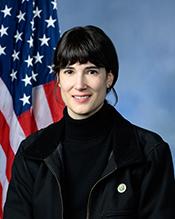H.R. 808: Fairness for the Trades Act
This bill, known as the "Fairness for the Trades Act," proposes amendments to the Internal Revenue Code of 1986 regarding how certain expenses related to business can be managed in terms of higher education funding. Specifically, the bill seeks to allow **qualified business trade expenses** to be classified as **qualified higher education expenses** for the purposes of **529 accounts**.
Key Provisions of the Bill
- Inclusion of Business Expenses: The bill adds a new provision that permits certain business-related expenses to be considered as qualified higher education expenses. This means individuals who are saving for education through a 529 plan will now have the ability to use those funds for business-related costs as well.
- Definition of Qualified Business Trade Expenses: The bill defines qualified business trade expenses as amounts paid for specific business property used by an individual in a qualified trade field. This includes tangible property, excluding buildings, that is eligible for depreciation.
- Qualified Trade Fields: The qualification for the trade field is limited to those described by certain North American Industry Classification System (NAICS) codes. This includes a variety of sectors such as agriculture, construction, and specific service industries.
- Effective Date: The changes proposed by this bill will take effect for expenses incurred in taxable years starting after the enactment of the legislation.
Impact of the Bill
The primary outcome of this bill is to provide broader access for individuals in trade professions to utilize 529 plan funds for their educational and business-related expenses. This could potentially alleviate financial burdens for those paying for education in trade professions, enabling more flexible uses of savings accrued in 529 accounts.The initiative represents an effort to support individuals in specific trade fields, acknowledging that their education and associated expenses may extend beyond traditional college tuition, extending benefits to those involved in practical and vocational training and business expenditures.Relevant Companies
None found.This is an AI-generated summary of the bill text. There may be mistakes.
Sponsors
3 bill sponsors
Actions
2 actions
| Date | Action |
|---|---|
| Jan. 28, 2025 | Introduced in House |
| Jan. 28, 2025 | Referred to the House Committee on Ways and Means. |
Corporate Lobbying
0 companies lobbying
None found.
* Note that there can be significant delays in lobbying disclosures, and our data may be incomplete.
Potentially Relevant Congressional Stock Trades
No relevant congressional stock trades found.


